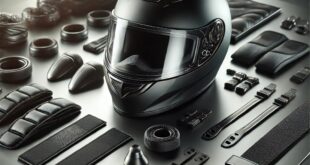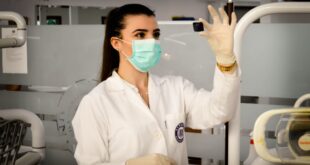When was the last time you looked at your sidewalks? Like really looked? Over time, grime, dirt, and algae build up, making them look dull. Sidewalks can transform a property, but only if they’re clean. Let’s explore why pressure washing sidewalks is so worth it.
Why Sidewalks Deserve More Attention
You might not realize it, but sidewalks shape first impressions. They get heavy foot traffic, weather exposure, and the occasional mess from nature. Regular sweeping won’t cut it. Pressure washing can make a difference. It’s not just about aesthetics; it’s also about safety.
Benefit 1: Boosts Curb Appeal
Clean sidewalks change everything. They make a home or business look fresh and inviting. When visitors walk up to a property, sparkling sidewalks set the tone. Even if the building is spotless, dirty sidewalks ruin the vibe.
Imagine this: you clean your space with a tile floor cleaning machine, and the interiors shine. Now, imagine those spotless interiors paired with stained, grimy sidewalks. Not great, right? Pressure washing can tie the whole look together.
Benefit 2: Improves Safety
Slippery sidewalks are dangerous. Algae, mold, and grease make surfaces slick. Pressure washing removes these hazards. It scrubs away grime and helps prevent slips and falls.
Safety matters, especially for businesses. A clean sidewalk means fewer accidents and liabilities. Even at home, you don’t want friends or family slipping on algae patches.
Using a pressure washer pistol gives you control over the spray, targeting stubborn stains without damaging the surface. Keep sidewalks safe and sound.
Benefit 3: Prevents Long-Term Damage
Sidewalks face harsh elements. Water, salt, and debris can erode concrete. If you don’t clean regularly, minor issues become major repairs. Pressure washing gets into the pores of concrete, washing out harmful substances.
Think of it as preventive maintenance. It’s easier and cheaper than replacing broken slabs. Pressure washing keeps the concrete healthy and strong. For homes and businesses, that means fewer headaches down the road.

Benefit 4: Saves Time and Effort
Scrubbing sidewalks with a brush is exhausting. Pressure washing does the job faster. It delivers a deep clean in minutes, not hours.
For commercial areas, this efficiency is a game-changer. Imagine having to clean expansive sidewalks manually. That’s a lot of labor! Instead, a high-powered pressure washer, paired with a carpet extractors commercial model for nearby carpeted areas, simplifies everything. It saves time, energy, and money.
Benefit 5: Eco-Friendly Cleaning
You might not think of pressure washing as eco-friendly. But, surprisingly, it is. Unlike harsh chemical cleaners, pressure washers mostly use water. With the right attachments and eco-friendly solutions, you can remove grime without harming the environment.
If you use your pressure washer pistol efficiently, you save water compared to traditional hosing. Plus, you get a better clean with less runoff.
How to Get the Best Results
Pressure washing isn’t complicated, but a few tips can make the experience better.
1. Use the Right Equipment
A basic garden hose won’t do. You need the real deal. Pressure washers come in various sizes and strengths. If you’re cleaning a sidewalk covered in tough stains, use a model with at least 3,000 PSI. Make sure to attach a pressure washer pistol for precision.
For surrounding areas like patios, a tile floor cleaning machine can complement your efforts.
2. Choose the Proper Nozzle
Not all nozzles are created equal. For sidewalks, a 25-degree nozzle balances power and safety. It cleans effectively without gouging the concrete.
Remember, sidewalks endure enough wear and tear. You don’t want to damage them further.
3. Work in Sections
Cleaning an entire sidewalk at once isn’t practical. Divide it into manageable sections. This ensures an even clean and keeps you focused. Start from the top and work your way down. Rinsing as you go prevents dirt from settling back.

Don’t Forget Nearby Areas
If you have outdoor carpets or mats, clean them separately with carpet extractors commercial tools. These machines tackle deep-seated grime and odors, ensuring your outdoor space feels fresh.
Pressure washing may leave water spots, so using an extractor on fabric elements nearby creates a polished look.
When to Pressure Wash Sidewalks
Spring is ideal for pressure washing. After a long winter, sidewalks accumulate salt and grime. A good cleaning brings them back to life. But don’t wait until spring if your sidewalks are slippery or stained.
Regular maintenance matters. Make it a habit to assess your sidewalks every few months. The more proactive you are, the better your sidewalks will look and perform.
Conclusion
Pressure washing sidewalks goes beyond appearance. It’s about safety, preventing damage, and saving time. It’s eco-friendly, too. Done right, it gives your property an instant upgrade. And let’s be real, who doesn’t want a cleaner, safer, and more appealing space?
FAQs
- Can I pressure wash sidewalks myself?
Yes, with the right equipment. Just be careful with pressure settings. - How often should sidewalks be pressure washed?
Once or twice a year is sufficient for most areas. - Can pressure washing damage concrete?
If you use too much pressure or the wrong nozzle, yes. Always start with lower settings. - Is it expensive to hire professionals?
It depends on the area size. However, it can be worth the investment for large spaces. - Should I use chemicals?
Usually, water and a gentle detergent work fine. Avoid harsh chemicals that can erode concrete.
 The Random Collective Where Curiosity Meets Creativity
The Random Collective Where Curiosity Meets Creativity






